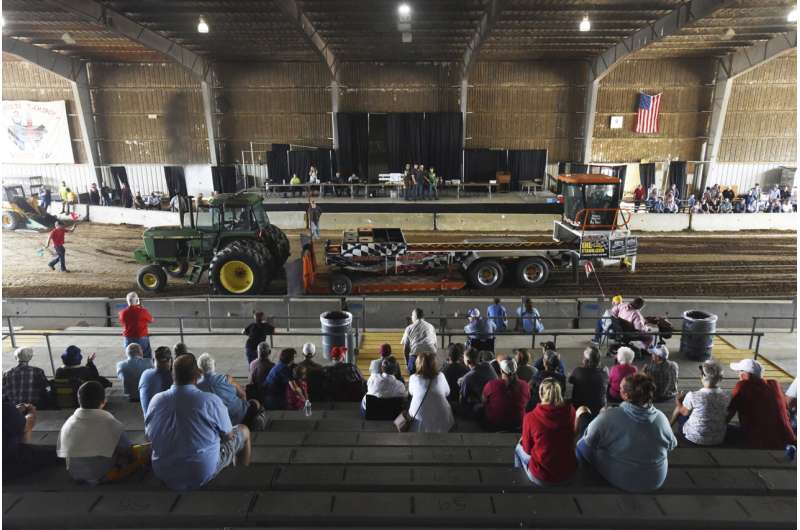This article has been reviewed according to Science X's editorial process and policies. Editors have highlighted the following attributes while ensuring the content's credibility:
fact-checked
reputable news agency
proofread
New estimate shows rural Americans and men are more likely to suffer from hearing loss

A new estimate shows hearing loss affects approximately 37.9 million Americans and is more common in rural areas than urban ones and in men than women.
The study, published Wednesday in The Lancet Regional Health-Americas Journal, is the first to estimate hearing loss rates at the state and county level, and was led by NORC at the University of Chicago. The estimates are for 2019 and only include people who have hearing loss in both ears.
While the study could not explain the reason for the geographic divide, experts who treat hearing loss say there are two factors to consider: how loud noises are and how often people hear them.
A person who rides the subway in a bustling city could, in theory, go six to eight hours before being at risk of hearing loss, said audiologist Nicholas Reed, an assistant professor of epidemiology at Johns Hopkins University who co-authored the study. On the other hand, hunters who don't wear protection can damage their hearing with just a few pulls of the trigger.
Experts say rural Americans need better access to hearing screenings and specialists. Many jobs in rural areas may use loud machinery. Popular leisure activities in these areas, like hunting, woodworking and riding all-terrain vehicles, also put hearing at risk.
The study also found men were more likely than women to have hearing loss, starting at 35, which is in line with previous estimates. The highest rates were among non-Hispanic white people and those 65 and older.

"The number one risk factor for hearing loss is age," said David Rein, director of NORC's public health analytics program and the paper's lead author.
Audiologist Melanie Buhr-Lawler, a clinical professor at the University of Wisconsin-Madison, said she saw the threats to hearing health growing up on a farm in rural Wisconsin and later researching hearing loss in rural residents.
"People who live in rural areas have a hearing health double-whammy," said Buhr-Lawler, who was not involved with the study. "So they're more exposed to high noise levels through their work, be it mining or farming or other rural occupations, but also through leisure activities."
For years, her research team handed out thousands of earplugs at a tractor pull in Tomah, Wisconsin, to raise awareness.
The U.S. Centers for Disease Control and Prevention funded the study.
© 2024 The Associated Press. All rights reserved. This material may not be published, broadcast, rewritten or redistributed without permission.




















